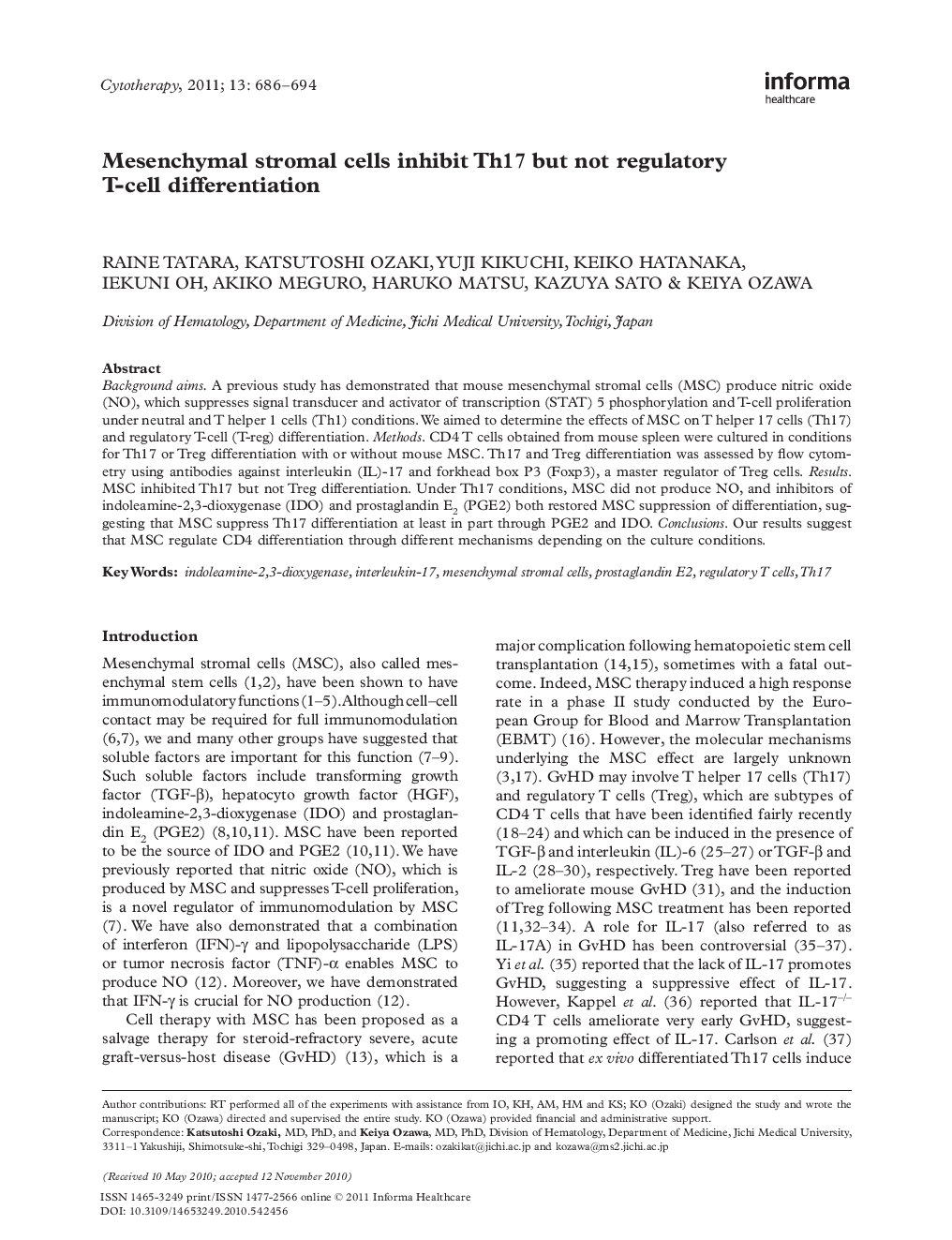| Article ID | Journal | Published Year | Pages | File Type |
|---|---|---|---|---|
| 2171872 | Cytotherapy | 2011 | 9 Pages |
Background aimsA previous study has demonstrated that mouse mesenchymal stromal cells (MSC) produce nitric oxide (NO), which suppresses signal transducer and activator of transcription (STAT) 5 phosphorylation and T-cell proliferation under neutral and T helper 1 cells (Th1) conditions. We aimed to determine the effects of MSC on T helper 17 cells (Th17) and regulatory T-cell (T-reg) differentiation.MethodsCD4 T cells obtained from mouse spleen were cultured in conditions for Th17 or Treg differentiation with or without mouse MSC. Th17 and Treg differentiation was assessed by flow cytometry using antibodies against interleukin (IL)-17 and forkhead box P3 (Foxp3), a master regulator of Treg cells.ResultsMSC inhibited Th17 but not Treg differentiation. Under Th17 conditions, MSC did not produce NO, and inhibitors of indoleamine-2,3-dioxygenase (IDO) and prostaglandin E2 (PGE2) both restored MSC suppression of differentiation, suggesting that MSC suppress Th17 differentiation at least in part through PGE2 and IDO.ConclusionsOur results suggest that MSC regulate CD4 differentiation through different mechanisms depending on the culture conditions.
